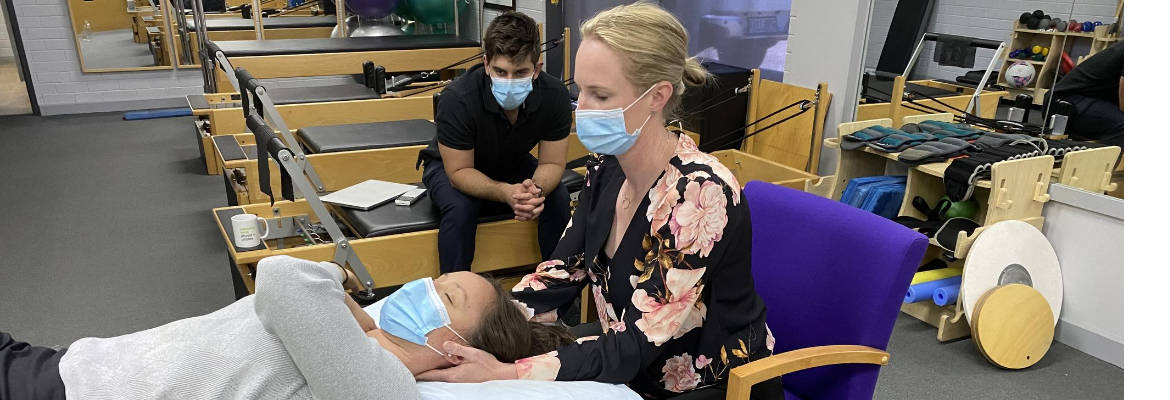A longstanding client and friend of the clinic shared an article with our Facebook VIP group this week about how many physios follow recommended guidelines. It raised some very interesting points that were worth talking about further. It is also worth applying the same standards to other health services too.
The article in question
The author of the article conducted research into how much physio treatment is actually recommended treatment for a variety of musculoskeletal conditions. He is a physio from Sydney with a PhD, looking at ways to reduce low-value physiotherapy interventions so that what is done by physios is high value. I think that is a noble pursuit, I would like to think that other health professions would do the same (but do they?).
To be clear, recommended care means getting tests, treatment or advice that follows ‘evidence-based’ guidelines.
But what does ‘evidence-based’ mean? It is a term that is bandied around a bit these days, but what qualifies as evidence-based?
It means supported by a combination of these:
- research evidence, ideally in the form of randomised controlled trials
- expert opinion
- consensus
Understandably, it isn’t just effectiveness and benefit to the patient that creates recommended guidelines – cost-effectiveness comes into the equation.
If two thirds of physios follow recommended guidelines, that means…
The headline of the article says that only two thirds of physios provide recommended care in his study. Osher would do the maths and say that means that one third don’t.
It is also interesting to compare this to the 55-57% of consults in Australia or the US who receive recommended care at GP clinics or hospitals. I would have thought (or hoped) that this would be higher.
[I would be interested to know how the figures stack up for other health care providers like chiropractic, osteopathy, podiatry and different specialities of medicine like orthopaedics.]
On first read, I thought “wow, that is shameful. Only two thirds of physios. Are the other third not following guidelines knowingly or unknowingly? It doesn’t matter if it is done unknowingly, because they should be keeping up with what is current” I thought to myself.
The article talks about reasons that clinicians, physios or doctors don’t provide recommended care. These reasons include the wishes of the patient, lack of trust in the evidence or guidelines, or experience providing certain types of care.
I would argue that other possible reasons are therapist unwillingness to change, therapist unwillingness to self-educate, and therapists not maintaining contact with current evidence.
Even if you don’t do harm, can you still do harm?
The author said that one of the consolations of physios not using recommended care was that it was unlikely to harm patients. I have a problem with this thinking.
Perhaps from a physical point of view, putting electrotherapy on someone’s knee isn’t going to do them any harm and might even give them short term relief (even though it isn’t supported as a recommended treatment due to it not providing any long term benefit). However, the treatment effects go beyond this.
Using a low value treatment like this is giving the wrong impression. Using electrotherapy in this way is teaching the patient that they need a passive treatment for their knee and implying that they need electrotherapy to get better.
What is the explanation that a physio will give for using electrotherapy in this situation? Whatever the explanation is, it is teaching them something that it inherently wrong. Even if every other treatment that is used is ‘evidence-based’ like correctly-dosed strengthening, weight loss and advice, all of its value is undermined by putting electrotherapy on and delivering a message that they ‘need’ electrotherapy. At very best, it is contradictory to all the other parts of the message.
Language matters
I would argue that the quality of the advice given and the language that is used is just as important as the physical hands-on treatment that everyone associates with a physio. You can make someone more fearful and provide a worse outcome with something as simple as words, even though the physical ‘deliverable’ is following the recommended treatment guidelines.
I also think back to when I started working in 1995. Back then, the concept of evidence-based treatment was just gaining momentum. There was only evidence for two things for back pain – heat and not staying in bed for more than 48 hours. I remember the physio that I was working for was not super impressed, and how limiting the ‘evidence’ was in terms of treatment.
Evidence-based medicine has moved on substantially since then, but we still have to remember that there are a multitude of treatments that will never get the scrutiny that physios and their patients would benefit from. A good randomised controlled trial takes money and lots of it. Pharmaceutical companies have the budgets to spend on RCTs because it is worth it to them if they get a winner that will earn the company profits, but it’s not the same when you are talking about which kind of exercise approach is more effective!
GLA:D is a good example of recommended guidelines
As the author of the article says traditionally, conditions like knee osteoarthritis and hip osteoarthritis ‘were managed with medication and surgery. However, medications such as opioids cause harm and there is growing evidence some common surgical procedures are ineffective. This has prompted a shift in what is recommended for musculoskeletal conditions.’
The treatment of hip and knee OA is a good example of this, and our GLA:D programme is an example putting this into practice. The recommended first line approach is exercise and weight loss and advice, medication is not first line treatment. Surgery is suitable only once failure of the first two approaches.
More than that, the GLA:D delivery is providing an ever-increasing body of evidence for its effectiveness, through the register of participants which is well in excess of 300 000 now. The way the programme has been constructed is a template for the future and how physios and other health professionals can provide solid evidence for a treatment approach with clinicians aggregating evidence.
We are proud at Adelaide West Physio and Pilates and Headache Clinic to be striving to provide high-value patient care using the best available evidence. We are proud to be taking part in the GLA:D programme. To learn more about GLA:D, click here.
Needless to say, we are in the two thirds of physios that do follow recommended guidelines.
References:















